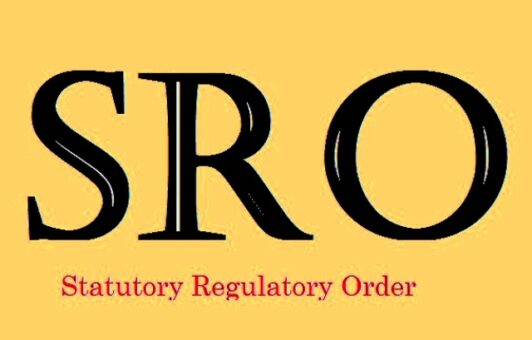ISLAMABAD: Federal Board of Revenue (FBR) on Monday launched prize scheme for customers of retailers, who integrated their sales through Point of Sales (POS) with the tax system.
The FBR issued SRO 1005(I)/2021 for launching the prize scheme for customers of tier-1 retailers, who have integrated their retail outlets with the FBR computerized system for real-time reporting of sales and mystery shopping in respect of verification of invoices from such retailers.
Procedure for prize scheme.—
The customers of integrated tier-1 retailer, whose names and CNICs are notified through random computerized draw shall be entitled to prizes in respect of their purchases from the integrated tier-1 retailers.
The customers shall verify the electronically generated invoice of integrated retailers either through “tax asaan” application or by sending sms to number 9966.
The application shall notify the customer regarding the status of invoice either as “verified” or “unverified”.
In case of verified invoice, the customer shall furnish one time, the following detail to the online system, namely: Name; CNIC; and Mobile number
Names and CNICs of the customers shall be included in the random computerized draw upon fulfillment of the requirement.
In case of unverified invoice, the customer shall report the same through system. The Board shall conduct enquiry and take appropriate action under the relevant provisions of law.
The computerized draw for the prizes shall be held in the first week of every month starting from the month of August, 2021 at the FBR Headquarters and the invoices of the immediately preceding month shall be entered in the draw.
Draw winners shall be required to perform biometric verification, at the nearest e-sahulat facility of NADRA and submit scanned copy on “tax assan” application. After successful biometric verification, winners shall be required to provide their IBAN through “tax asaan” application.
The total prize money and the denomination of the prizes shall be decided on month to month basis by the Board.
Procedure for mystery shopping.—
Mystery shopping shall be conducted by a person or the firm, duly authorized by the Board.
The person or firm authorized by the Board under sub-rule (1), shall carry out mystery shopping on random basis from tier-1 retailers.
The person or firm authorized by the Board under sub-rule (1), shall verify the invoices from the online system of FBR and in case of fake or invalid invoice, report the matter to the Board for necessary action as per relevant provisions of the Act and the rules thereunder.
Any other person may, in case of fake or invalid invoice, report the matter to the Board for necessary action as per relevant provisions of the Act and the rules thereunder.
The informer may claim reward on the basis of the detection and recovery made in consequence of fake or invalid invoice in terms of provisions of section 720 of the Act.




